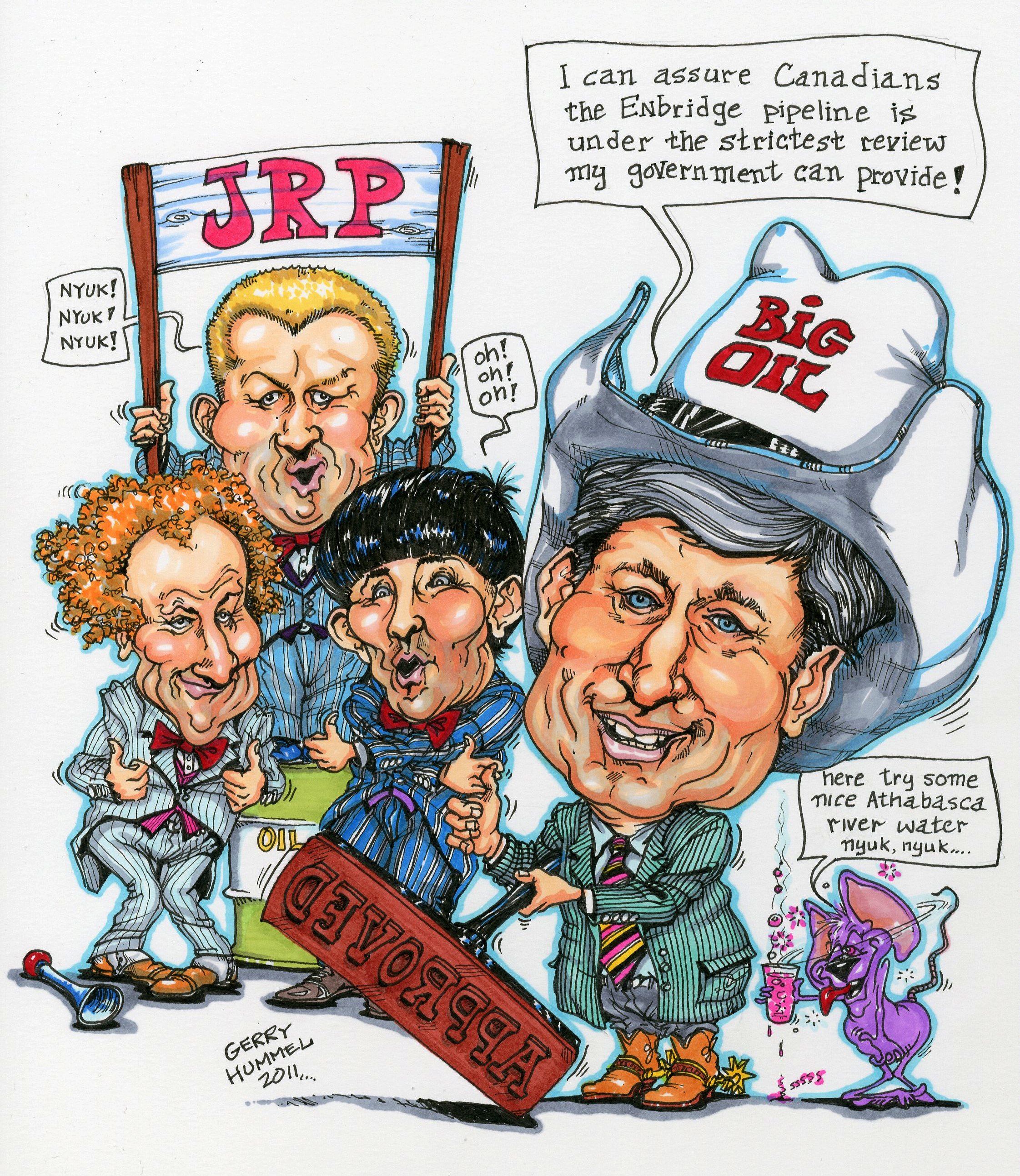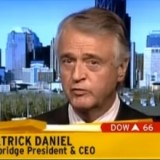I commented here last week upon Premier Clark’s silence on all the great issues she faces and questioned what her policies will be. I expect no answer because she wants to put all Gordon Campbell did into the darkest corner of the cupboard. The strategy is “that was then and now is now”; I am Premier Clark and my responsibility started last March 14 when I was sworn in.
This, as I will show, is not so. It started the day she became a Campbell cabinet minister in May 2001.
Let’s take a trip down memory lane but start with a current issue – what does the HST have in common with the environment? The answer to this will weave an unbroken and unbreakable thread back to 2001.
Both the HST end the environment ask public acceptance based upon the credibility of the Campbell/Clark government – a government that has lied through its teeth for the seemingly endless decade-plus they have been in power.
Surely no one, not even the Fraser Institute, believes that the Liberal government will drop the HST to 10% in 2014!
First of all, God’s mercy will see that they’re no longer in power so they won’t be around to keep a pledge they never intended to keep on the first place. If God is just and not merciful, there isn’t a chance that a future Liberal government will keep that promise. In short, Ms. Clark has made a pledge she will never redeem and may never be required to.
All government policy depends upon credibility. Unfortunately, the public has learned to expect some government deceit but usually it’s deceit by way of exaggeration – rather like the gilding of the lily practiced in most societies in order to stay at peace with one another. We learn how to discount the statements made – political statements are expected to have a measure of barnyard droppings mixed in. As former New York governor Mario Cuomo said, “You campaign in poetry and govern in prose.”
But this is different. Big time. We’re talking about major league falsehoods.
I call this government the “Campbell/Clark” government for that’s what it is. Premier Clark participated in the deceit when she was in government, accepted it uncritically when she was a talk show host, and perpetuates it in office by not dealing with it.
It started when Campbell, after holding the NDP to the highest standards of probity, somehow forgot that idealism when he was thrown into jail for drunk driving. Christy Clark, Education Minister, offered not a whisper of criticism. Like all good Liberal toadies, she went along.
He lied about BC Rail, Fish Farms and private power.
With BC Rail, he pledged in two elections including the one that made him premier that he would not privatize BC Rail (as did Ms. Clark, as co-author of the Liberals’ 2001 campaign platform). Of course, he did and Clark went along with him at the time, during her radio career and to this date.
Not a peep out of Clark, on air or in office, as Campbell settled the Basi-Virk case just before he, former Finance Minister Gary Collins, and Sir Hiss, Patrick Kinsella, were to give evidence.
Premier Campbell let fish farms expand exponentially saying that he was following the best science available. The public now knows what opponents of fish farms have always known – the scientist he was listening to was a disgrace to the Department of Fisheries and Oceans and a fish farm industry suck. He was out of synch with every fish biologist in the world that deals with this issue. Christy Clark has been silent since the beginning and is silent now.
With private power companies (IPPS) the Campbell/Clark government has uttered nothing but falsehoods. I hate to dwell on poor old former Finance Minister Colin Hansen because he seems to be such a nice guy, but in a video blog the Liberals have now erased, he made half a dozen statements about so-called “run of river” policy that were plainly and simply falsehoods. These falsehoods were not minor little errors – they went to the root of the matter. Ms. Clark has not uttered a word of criticism – or strangely support – of this disastrous policy which even the Vancouver Province called “folly” and which a recent op-ed in the Vancouver Sun, published under the aegis of former Fraser Institute “fellow”, Fazil Milhar, roundly criticized.
This policy forces BC Hydro to buy from IPPs power they don’t need and must thus export at a 50%+ loss or use it at double or more what they can make it for themselves. This cost Hydro $600,000,000 last year and this is just the beginning of the reckoning. Not a word from our premier.
We have seen this policy drive BC Hydro to where they would be, if in the private sector, in bankruptcy protection with much worse to come. Not a squeak of criticism or concern from Ms. Clark.
We’ve seen this policy destroy one river, and its ecology, after another yet not a word from the premier at the time the policy was made when she was a cabinet member, later as a talk show host, or now as premier. Premier Clark, a supporter of the Prosperity Mine proposal at Fish Lake, now in charge of energy and the demise of BC Hydro, acts as if nothing was happening. And now she has pipelines and tankers to deal with.
It is critical to understand that pipeline leaks and tanker accidents are not risks but certainties. The Liberal government told the Federal government, in writing, some years ago that it did not oppose super tankers on the coast. In the recent Premiers Conference Ms. Clark hedged on the pipeline issue; she refused to take a stand.
This issue, like the private power issue, has no middle ground as in “you can’t be a little bit pregnant.” All the evidence she ever needs is there in logic – an unfettered risk is a calamity in waiting – and evidence of the colossal negligence of pipeline operators generally and Enbridge specifically. The decision is “yes” or “no” and there will never be more information needed than the premier presently possesses.
Silence implies consent. One of the penalties of consenting to the Liberal record is that no credibility remains.
As it is with the HST, as it is with the disgraceful deceit by this government from the outset, so it must be predicted for the future – an utter lack of credibility.
It is a millstone around Premier Clark’s neck she consented to.
It’s a millstone she can never be rid of.





